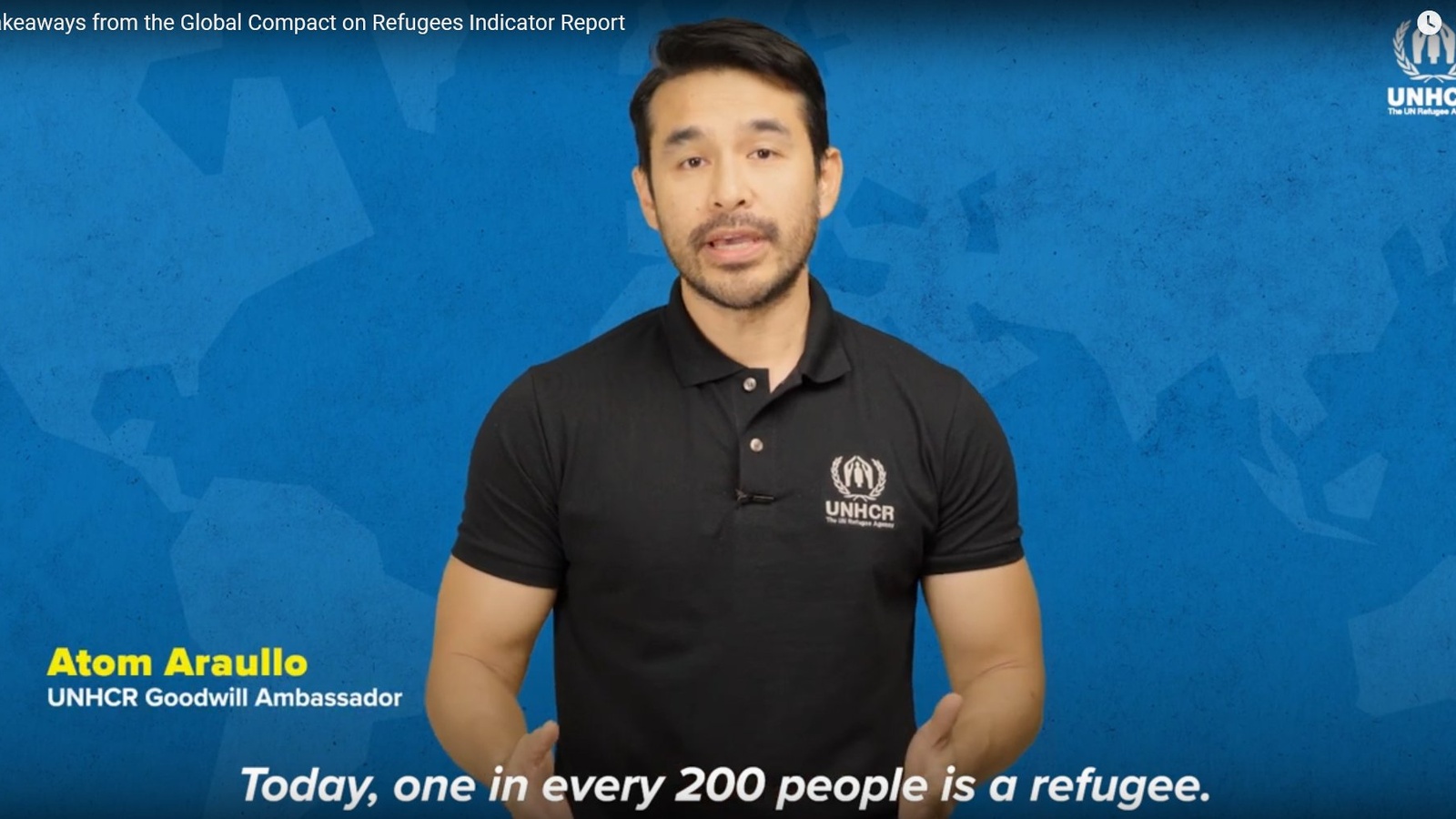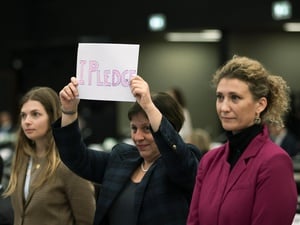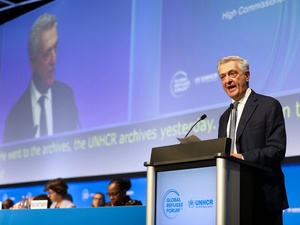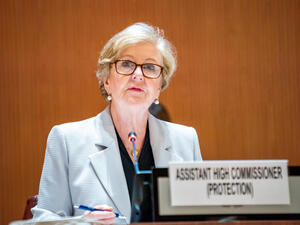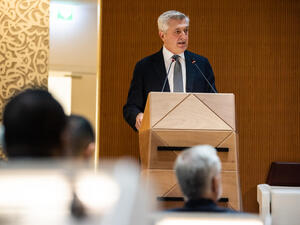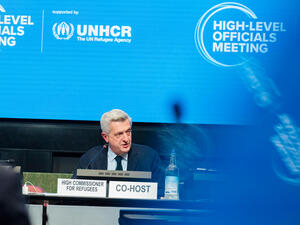UNHCR: Refugee indicators show progress on inclusion but need for wider action
UNHCR: Refugee indicators show progress on inclusion but need for wider action
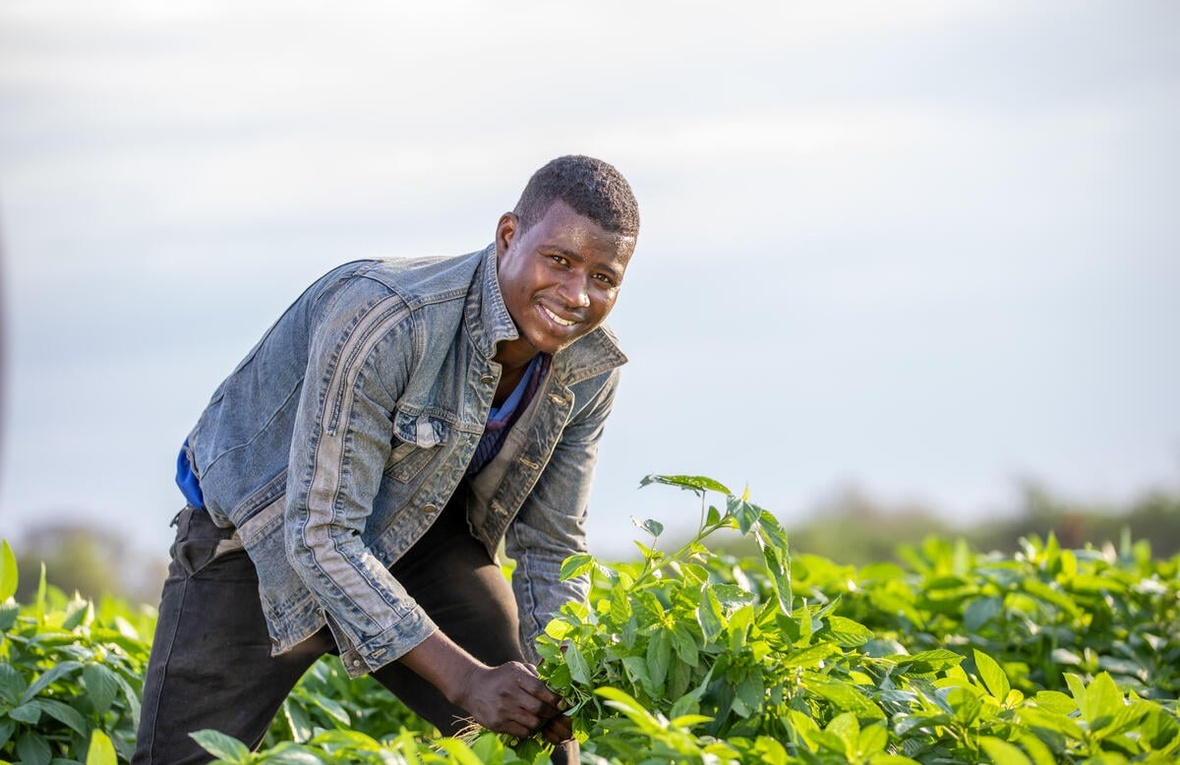
The report found progress on key objectives including enhancing refugee self-reliance and easing pressure on host countries.
GENEVA – The world has made tangible progress in delivering shared, aligned and data-driven responses to lay the groundwork for improving refugees’ lives in the past four years, but must accelerate these gains to manage the continuing surge in global forced displacement, UNHCR, the UN Refugee Agency, said on Friday.
Ahead of next month’s Global Refugee Forum, UNHCR's Global Compact on Refugees (GCR) Indicators Report 2023 showed sustained progress on four key objectives: Easing pressure on host countries; enhancing refugee self-reliance; expanding access to third-country solutions; and supporting conditions in countries of origin.
“This report is, at its heart, a source of hope even though there is more to be done,” said Gillian Triggs, UNHCR's Assistant High Commissioner for Protection. “The data and evidence confirm the vision at the core of the Global Compact on Refugees. Only by working together can we protect refugees.”
The report found seven out of 10 refugees had legal access to work, but only half had access in practice to formal employment. Six out of 10 refugees enjoyed legal freedom of movement. The policy environment for refugee access to education was judged generally positive. In addition, since 2016, the number and range of partners involved in refugee responses increased, including more local NGOs, faith-based organizations, refugee- and women-led organizations.
Resettlement departures rebounded in 2022, but not at a scale to narrow the gap between needs and departures. Over 1.2 million refugees were able to access alternative pathways to access safety, as well as family reunification, from 2016 to 2021.
Funding for refugee situations remained significant: official development assistance (ODA) in low- and middle-income countries reached US$26.4 billion in 2020-2021. Most ODA came from five large providers.
At mid-2023, there were 35.8 million refugees under UNHCR’s mandate as well as other people in need of international protection, with around two-thirds in protracted situations. Their needs continue to outstrip solutions, including around returns, and available funding. Responsibility-sharing remains highly inequitable – 55 percent of refugees are hosted in just 10 countries and 75 per cent live in low- or middle-income states.
The effects of COVID-19 were linked to the first increase in global poverty in 30 years. Where data was available, refugee populations tended to experience higher poverty rates than nationals, with children in particular impacted.
“The gaps show where we must scale up efforts at all levels,” said Triggs. “The Global Compact is the blueprint. The upcoming Global Refugee Forum is where we will turn new commitments into measurable action.”
Contacts
In Geneva: Mel Paramasivan: [email protected], +41 79 526 59 48
Notes for editors
The report and the GRF:
The indicator report, the second of its kind since the UN General Assembly affirmed the Global Compact on Refugees (GCR) in 2018, will help focus and guide discussion at the Global Refugee Forum (GRF) to be held in Geneva from 13-15 December, expected to be attended by around 3,000 participants from around the world, from leaders to refugees.
The gathering will offer governments, the private sector, faith groups, charitable foundations, financial institutions, refugee-led groups, humanitarian and development actors and a wide range of other participants an opportunity to pledge concrete action to support refugees and the principles of the GCR.
The report showed that 1,700 pledges were announced since the 2019 GRF, involving 133 States and over 550 non-State actors.
One-third of pledges for which progress was reported were fulfilled. Find more information on the progress of 2019 pledges.
Find more information on the framework and methodologies used to draft the report.
Find information concerning Media Accreditation to the Global Refugee Forum.


